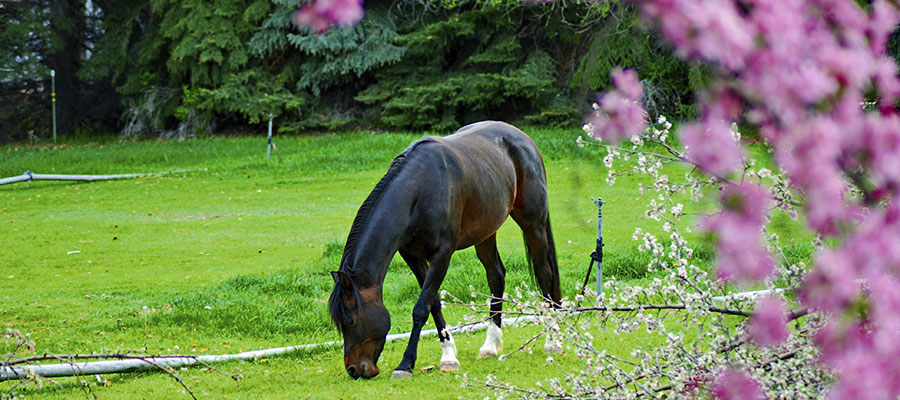Spring is a beautiful time of year unless you have a horse that founders.
Some horses and ponies are especially sensitive to the early green grasses. And in a matter of days, your horse can turn up lame if you don’t manage their intake. Learn how to keep your horse healthy on the inside even while they’re outside.
Early spring grasses are rich with water, vitamins, sugar and nutrients. But too much of a good thing could be bad news for your horses.
After being stalled all winter, a horse tends to overeat. And the abrupt switch from a hay-based diet to a rich pasture diet could put your horse at risk for Laminitis and other health issues. Founder is nothing to mess around with. It can do irreparable damage your horse’s coffin bone that could result in putting your horse down.
The good news is, there are several ways to combat this situation.
Take it slow
It’s always best to introduce your horse to early spring pastures, gradually. At first, let them consume small amounts of grass to supplement hay. Then, gradually increase the amount of grass until they’re bodies have fully adapted.
Control food intake
It’s very important to monitor the amount of food your horse is consuming. Putting grazing muzzles on horses allows them some freedom without the risk of overeating.
You can also limit grazing times. Start with 20 minutes and increase it gradually each day. This way your horse’s digestive system can get used to the richer food.
Increase activity level
Because spring grasses are more nutrient dense and appealing to horses, some gain a lot of weight. Keeping your horse active will improve their metabolisms, aid in digestion and keep their weight under control.
Even with adequate prevention, some horses are just more prone to Laminitis than others. If you find yourself with a foundering horse, try making hyaluronic acid (HA) a part of your feeding routine. It’s a natural anti-inflammatory that can relieve pain and improve mobility in horses with—or without—Laminitis.
Learn more about LubriSynHA.

